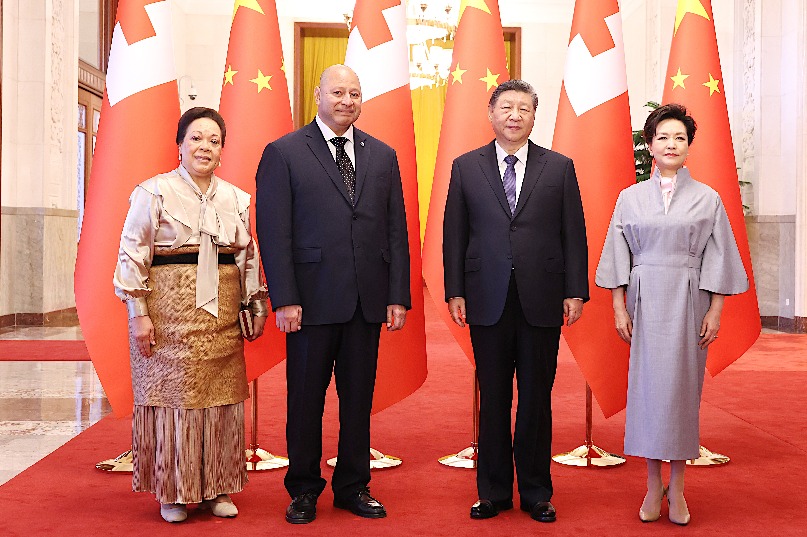Raising retirement age a much-needed and practical move


China has decided to gradually raise the retirement age of men from 60 to 63 and women cadres and women blue-collar workers from 55 to 58 and 50 to 55, respectively, in the course of 15 years starting from 2025.
This is an important step toward deepening comprehensive reform, and will affect the allocation of human resources, talent training and social development. How to handle the dialectical relationship between creating and sharing social wealth, and implement a retirement system that is compatible with the country's socioeconomic development level is important for guiding social reform in the right direction.
The government has always attached importance to the statutory retirement age. After the founding of the People's Republic of China in 1949, the central government introduced the retirement system to protect the legitimate rights and interests of workers. In the 1950s, the retirement age for men was fixed at 60 and women cadres and women blue-collar workers at 55 and 50, respectively. This arrangement has not changed.
But the retirement age needs to be raised in line with China's development level and demographic changes. Since the 18th CPC National Congress in 2012, the country has been deepening comprehensive reform, including the reform of the retirement system.
A country fixes the retirement age mainly based on its people's life expectancy and their physical health. According to the National Health Commission, China's life expectancy in 2023 was 78.6 years compared with 57 years in 1957.
After the launch of reform and opening-up in 1978, Chinese people's life expectancy has increased by more than 10 years. The 14th Five-Year National Health Plan said China's life expectancy could increase by one year between 2020 and 2025, and increase to 80 by 2035. Also, the average years of education the working-age population received increased from eight years in 1982 to 11.05 years in 2023.
Take female PhD candidates for example. They might be about 30 years old by the time they get their doctoral degree. If such highly educated women have to mandatorily retire at 55, their working years will be only about 25 years. Especially, since Chinese women's life expectancy is more than 80, their working years will account for only one-third of their life, which would limit their contribution to the country's socioeconomic development.
Therefore, raising the retirement age is necessary to ensure women make their due contribution to the country's socioeconomic development, and the people understand and adapt to the demographic changes including the low fertility rate and aging population.
China will improve its population development policy in response to the rapidly rising aging population and declining fertility rate, and build a sound system to provide lifelong population policy-related services for all in order to promote high-quality population development.
As a large number of elderly people are physically fit, capable and skilled, the gradual increase of the statutory retirement age will help limit the waste of human resources, extend the time they spend in creating social wealth and promoting social development, and reduce elderly people's dependency ratio.
As such, it is necessary to raise the statutory retirement in a prudent and orderly manner to offset the effects of the low fertility rate and rapidly rising population.
China's working-age population — people between the age 16 and 59 — started declining in 2013 and labor supply began shrinking in 2017. From 2022 to 2023, that is, in just one year, the working-age population declined by a whopping 10.75 million.
In the long run, China's working-age population will decline and the country could face a shortage of labor. One way of addressing these challenges and promoting high-quality demographic development is to gradually raise the retirement age, which will enable the "young elderly people" — those aged between 55 and 70 — who are highly qualified and in good health, and want to continue working to contribute to the country's socioeconomic development.
Life expectancy is high in most developed countries. Even such countries have raised (or are in the progress of raising) the retirement age to offset the effects of an aging population and shortage of labor despite having adopted relatively open immigration policy. In most developed countries therefore working age is between the ages of 15 and 64, and only people who are aged 65 or above are considered elderly.
Understandably, some people have raised concerns that if the retirement age is increased, more and more graduates will find it difficult to get a job. But a deeper analysis shows that raising the statutory retirement age is not a harsh move, and there is a certain structural difference between the vacancies created by retirees and the positions sought after by graduates. The impact of the reform will be generally mild on youth employment. The reform, which would necessitate adjustments in basic pension insurance, salary, employment and talent training, would require top design and meticulous planning.
The author is a special researcher at the Counselor's Office of Guangdong Provincial People's Government.
The views don't necessarily reflect those of China Daily.
If you have a specific expertise, or would like to share your thought about our stories, then send us your writings at opinion@chinadaily.com.cn, and comment@chinadaily.com.cn.



































